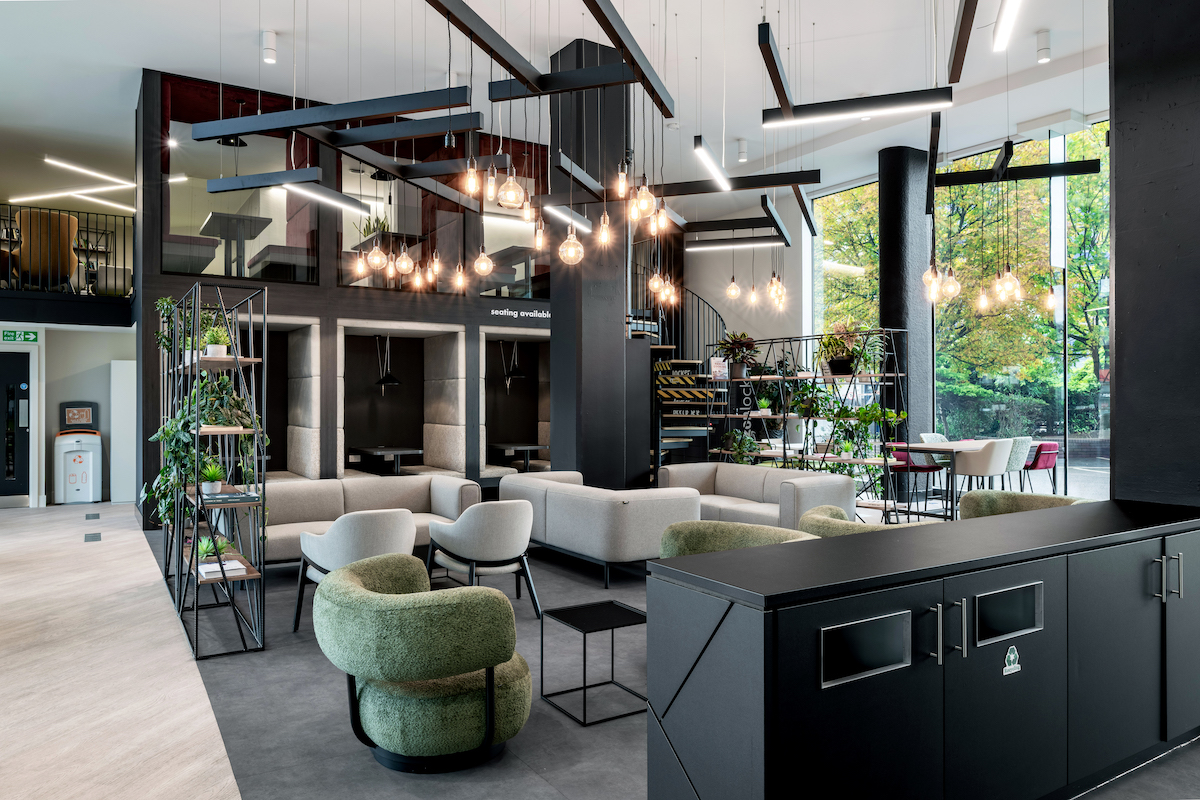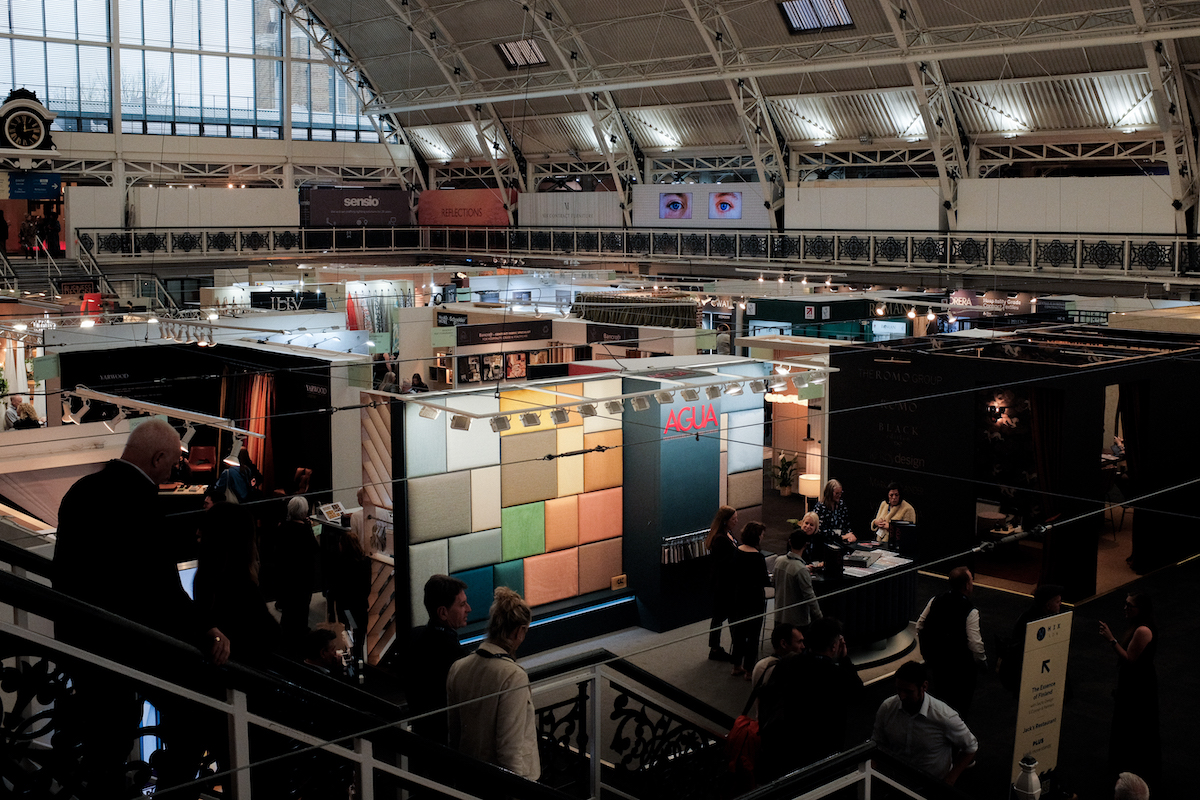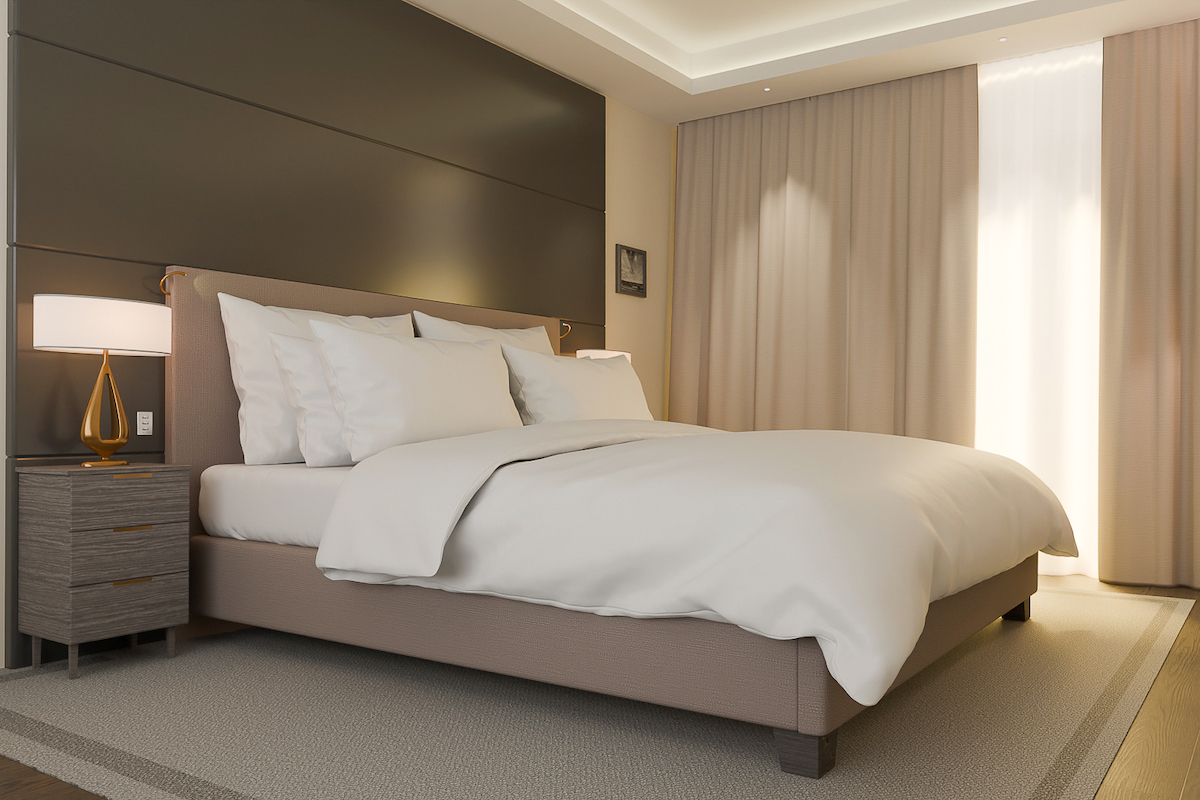The progress on our sustainability journey
Here’s the inside track on the measures we’re taking to tread lightly on the planet – from new, sustainable fabrics, to plant powered by renewable energy
Here at Agua we understand that being a sustainable business is no longer a ‘nice-to-have’, but a necessity. We might only be a small company in the grand scheme of things, but as a wise man once said, little drops of water can create a sea-change.
Going green – as we all know – is easier said than done, particularly for a business with all its different component parts and logistical challenges. Starting our own sustainability journey required real commitment and investment, but in recent years we’ve made significant progress in reducing our energy consumption and our carbon footprint.
Of course, like many businesses, our sustainability efforts remain very much a journey-in-progress, so we wanted to keep you in the loop on where we’re up to. Here’s how we are working to lessen our impact on the planet – and some insight into the eco-plans we have for the future.
Expanding on our fabric selection
Perhaps the biggest advance we’ve made in improving our environmental standing is creating VerdEco – our first sustainable fabric. It’s crafted entirely from pre-consumer textile waste otherwise destined for landfill, which is then recycled into granules, spun into yarn, and finally re-woven; this is all done using zero water (in fact, upholstering a three-seat sofa in VerdEco saves on average 250 litres of the stuff).
With its sophisticated looks, smooth handle and Crib 5 fire retardancy, VerdEco proved to us – and many of our clients – that sustainability doesn’t have to come at the cost of quality. And, excitingly, we can now let you know that we have another sister range to VerdEco currently in development, which will offer the same waste-free credentials.
Durability is another key concern of ours. Since the early days of Agua we’ve also worked to make our fabrics as hardwearing as possible, reducing the odds that you’ll have to replace them again and again. The proof here, is in the pudding. We’ve been supplying contract fabrics since 2003, and many of our earliest collections, like Taurus and Nova have been available ever since. We can’t name names, but the chances are you’ll have sat on Agua Fabrics that are close to 20 years old and still going strong in many hotel or coffee shop chains up and down the UK, who we supplied when our performance upholstery fabrics business was still in its infancy.
What’s more, because our vegan-friendly fabrics replicate animal products like leather and wool, we bypass often-destructive mass farming practices, and the use of pesticides and fertilisers.
Switching up our approach to samples
It’s not just our fabrics that we’re making more sustainable, we’re also taking steps to make our customer experience kinder to the environment. Take the sampling process, for example; ordering numerous fabric swatches can generate a lot of packaging waste.
The easiest way to solve this is to give you the best possible rendering of our fabrics online, so you can order with confidence – producing new high-resolution photographs of our entire collection (some 1,100 individual fabrics) has been no mean feat, but we’re now in a position to give you the best possible sense of our fabrics’ colour, texture and weighting.
Of course, you can also download electronic versions of our collection binders, to compare fabric ranges and colour variations side-by-side, in the knowledge that these too are as accurate as possible. Before the pandemic we also developed two ‘mega’ whole-collection shade cards, which condense 80 per cent of our soft fabric and faux leather ranges into two five-page foldouts, negating the need for you to store or continually update entire Agua binders. There’s no more economical way to get a sense of our 22 most requested collections.
Condensing our collections onto five-fold shade cards might sound inconsequential, but it makes a tangible difference. When we print 2,000 five-fold cards, we halve the time we spend on press and save 12,700 B1 sheets of paper-board versus printing the same amount of individual cards for each collection. We also save nearly 100 hours of production time, which drastically reduces our energy use.
Hopefully, all this will help you to be as efficient as possible with physical sampling. But, once you have a clearer idea of which Agua fabrics will work best for your project, our team is of course more than happy to send you a sample in the post – we understand that there’s nothing quite like feeling something with your own hands.
Reworking how we use chemicals
One of the biggest challenges we face is getting into the nitty-gritty of our manufacturing process, to reconsider things like the chemicals we utilise – an unavoidable ingredient when making high-performance fabrics for contract settings.
When it came to creating AguaGuard365, our bespoke anti-bacterial treatment that protects upholstered furnishings from a variety of viruses (including Covid-19), we steered away from using harmful heavy metals (a traditional method for fighting bacteria on fabric) and instead employed state-of-the-art silver chloride, which naturally destroy microbes while ensuring complete safety.
It’s also worth noting that the mill we partner with to produce over 95 per cent of our soft fabric collections is moving towards using halogen-free fire retardants, and has an environmental STeP accreditation through OEKO-TEX in the works, (we’ll share more on this soon). All of our fabrics are also phthalate free, and compliant with REACH chemical safety regulations.
Minimising our carbon emissions
Of course, a lot of the steps we’ve outlined above contribute to one big goal: reducing our carbon footprint. This is also something we’re trying to tackle head-on with our manufacturing and the company’s air miles.
In 2018, our partner factory replaced all its processing plant with new machinery that’s designed to run on reusable steam and minimise material waste. This machine is one of only a handful with this state-of-the-art technology in the whole of Europe. We then brought electric forklifts into the warehouse (rather than more dated models that run on diesel) and installed an automated packaging system, which uses around 35 per cent less protective recycled plastic wrapping than when packaging is done by hand.
Agua also tries to work exclusively with mills that are based in the UK – or geographically close to it – in order to reduce carbon emissions incurred in the transportation of our fabrics and raw materials. Our partner mills are doing some sustainability work of their own, too. For instance, all of them are in the process of installing substantial numbers of solar panels, from which they’ll source renewable electricity. Beyond that, the mill that makes 95 per cent of our soft fabrics is in the process of gaining OekoTex STeP accreditation, in acknowledgement of their sustainable manufacturing processes.
Alongside milling and finishing our collections, how we store fabrics has significant implications for our carbon emissions – and this is something we’ve recently addressed. In October 2022, we consolidated all our stock in a new warehouse in Bolton. For the first time, all our fabric – whether soft fabrics or faux leathers – is in one UK-based storage facility, so we no longer have to ship different collections separately to a single customer. Over the coming months, we’ll be able to calculate just how much carbon we’re saving through this consolidation, but there’s little doubt that removing double freight shipments from our ecosystem will offer a significant long term savings.
Thinking about the future
You might now be wondering what we’re planning next to boost our green credentials. We’ve already mentioned that our VerdEco collection is the blueprint for other sustainable fabrics currently in development. Beyond this our long-term aspiration is to develop as many sustainable high-performance fabrics as we can, and to continue to create performance fabrics in the best possible way, using clean chemicals and state-of-the-art technology.
There are huge challenges around developing appropriately durable faux leathers for contract use, but we’re investing in research and development nonetheless. Currently, we’re exploring the feasibility of producing appropriate tough plant-based vinyls, and how to do this in the most sustainable way.
From this month onwards, we’ll also be updating our fleet of company cars so that half of them are electric, and the other half are hybrid. On top of this, we’re making moves to attain Planet Mark: a rigorous certification process that benchmarks a company’s CO2 footprint and encourages certified businesses to build on these achievements. To do this, we’re committing to reducing our carbon footprint year-on-year.
No enterprise can claim to be a sustainable one overnight, but we’re committed to meaningful, ongoing change. This, for Agua, is just the beginning.
For more information, or if you have any queries, please do reach out to us on info@aguafabrics.com


